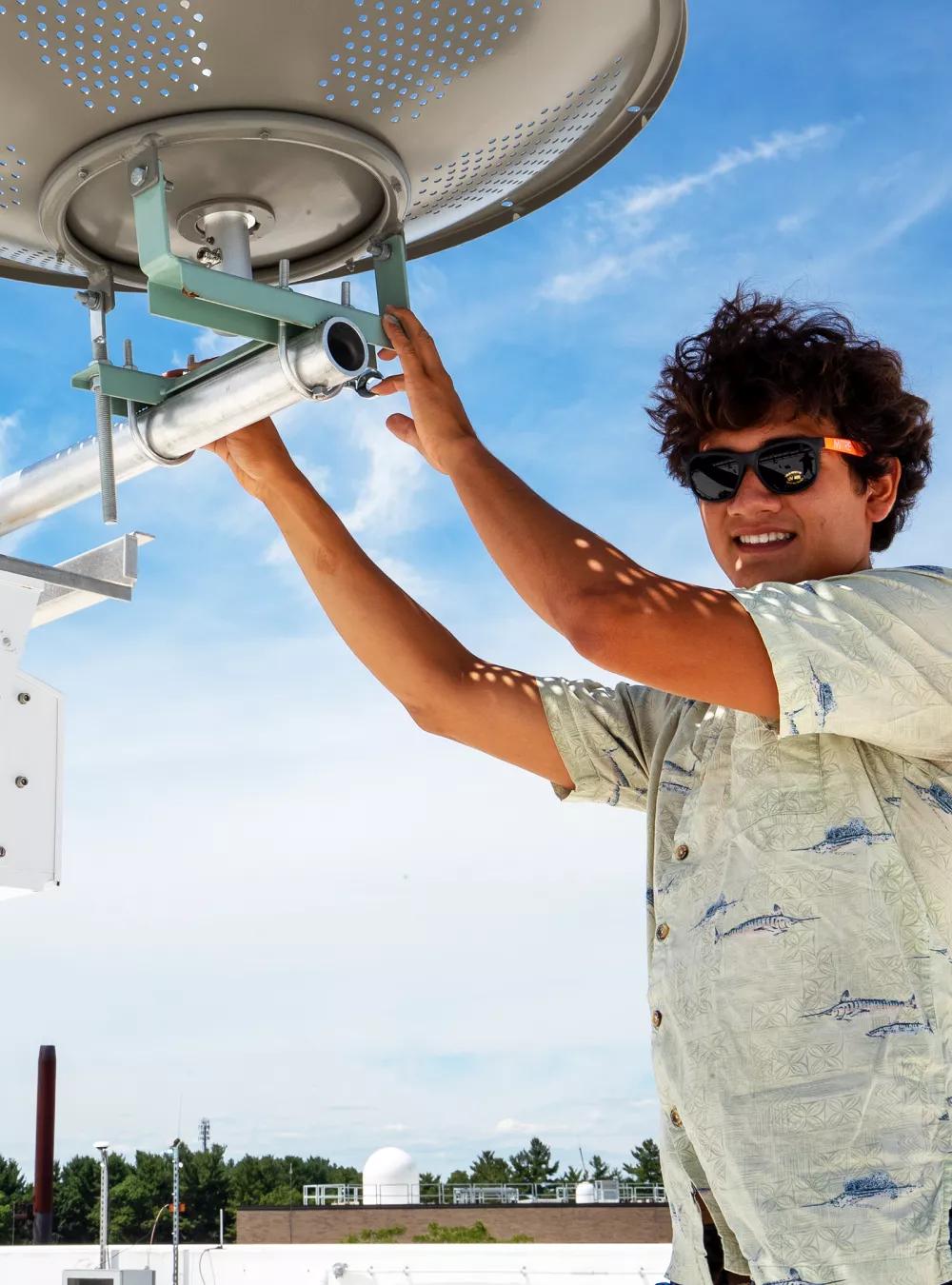Alex Theophanis, University of Florida

Multi-Year Intern Builds Projects, Builds Resume
Growing up, Alex Theophanis watched as his parents, Stephen Theophanis and Weiqun Shi, went to work each day at MITRE’s Bedford, Massachusetts, offices, but rarely visited the office himself. That all changed when, as a rising high-school junior, he began a summer internship at MITRE. Today, with two more years of undergraduate studies ahead, Theophanis continues to learn on the job as he ponders his future.
I was a LEGO kind of kid. Then I became interested in 3D printing—building and modding. That led to coding and more tinkering.
Justin Tufariello was looking for an Underwater and Acoustic System group intern the summer of 2018, and I was in the market for a job. It was a lucky break. And I’ve worked at MITRE every summer since.
Working Independently, Solving Problems
I was pretty intimidated starting out. There weren’t a lot of other high school interns at the time, and I had to get out of the mindset of expecting every little task to come to me one at a time. That’s not how it works here.
But everyone knows you’re just starting out and is really friendly and patient. They’re very busy, too. So, once they provide the basics, you get time and space to work things out on your own and learn as you go.
Before long, I realized I could tell myself, “Okay, I. know what I need to do now. I need to figure out how to do that to solve the problem.”
I’m always happy when MITRE asks me back, because I’ve gotten to know the people, the projects are all cool, and in general it’s just a nice place to work.
Hands-on Experience with Satellites and Acoustics
That first year, I mainly worked on acoustic signal processing for a microphone array to beamform and point at moving targets. I did some computer modeling on the transducer array, which consists of several transducers recording at the same time to utilize signal processing. I helped set up a data-recording device as well.
I also worked on one of Justin’s research projects: 3D printing ceramic transducers with special shapes to maximize gain. It was all the kinds of stuff I liked doing.
Each year has been a different experience. In 2020, it was all virtual, which I had to get used to, just like everyone else. In 2021, I worked on an antenna that had to be deployed in the field quickly. I came up with a way to make this big, round structure—known as a tensegrity—out of a bunch of PVC pipes and ropes. Programming is all right, but I like to work with my hands when possible.
Currently, I’m doing a lot of Python programming for a project for tracking satellites that launched a couple of years ago. The satellites have special 3D-printed metal antennas in them.
Working on the ground station that contacts and tracks them, I wrote code that web-scrapes the updated satellite orbit information and uses that to tell a pointer where to point and when. If you leave the pointer on the roof—just sitting there—when the satellite appears overhead, my Python programming tells the antenna positioner where to point the antennas and receive signals as the satellite passes by.
Charting a Course for the Future
I’m going into in my third year studying mechanical engineering at the University of Florida. In the engineering school, there’s a cool workshop students can use for tinkering and experimenting.
Because I’ve been lucky to work at MITRE during the summer, I don’t need to work while I’m in school. That gives me time for hobbies. I’ve been on the university’s solar-car design team, and next year I’m going to be the lead aerobody guy. It’s good to have hands-on experience with it.
I also like making surfboards. After my friend got me started, I got 3D printing involved with it. Between aerodynamics and fluid flows, an engineering background really helps!
After graduation, I haven’t decided whether I’ll work, go to grad school, or cruise around in a sailboat for a while. Whatever I choose to do, I’m grateful for getting real-world experience at MITRE.
—as told to Nancy Romps
Interested in solving problems for a safer world? Learn more about our student programs and job openings.